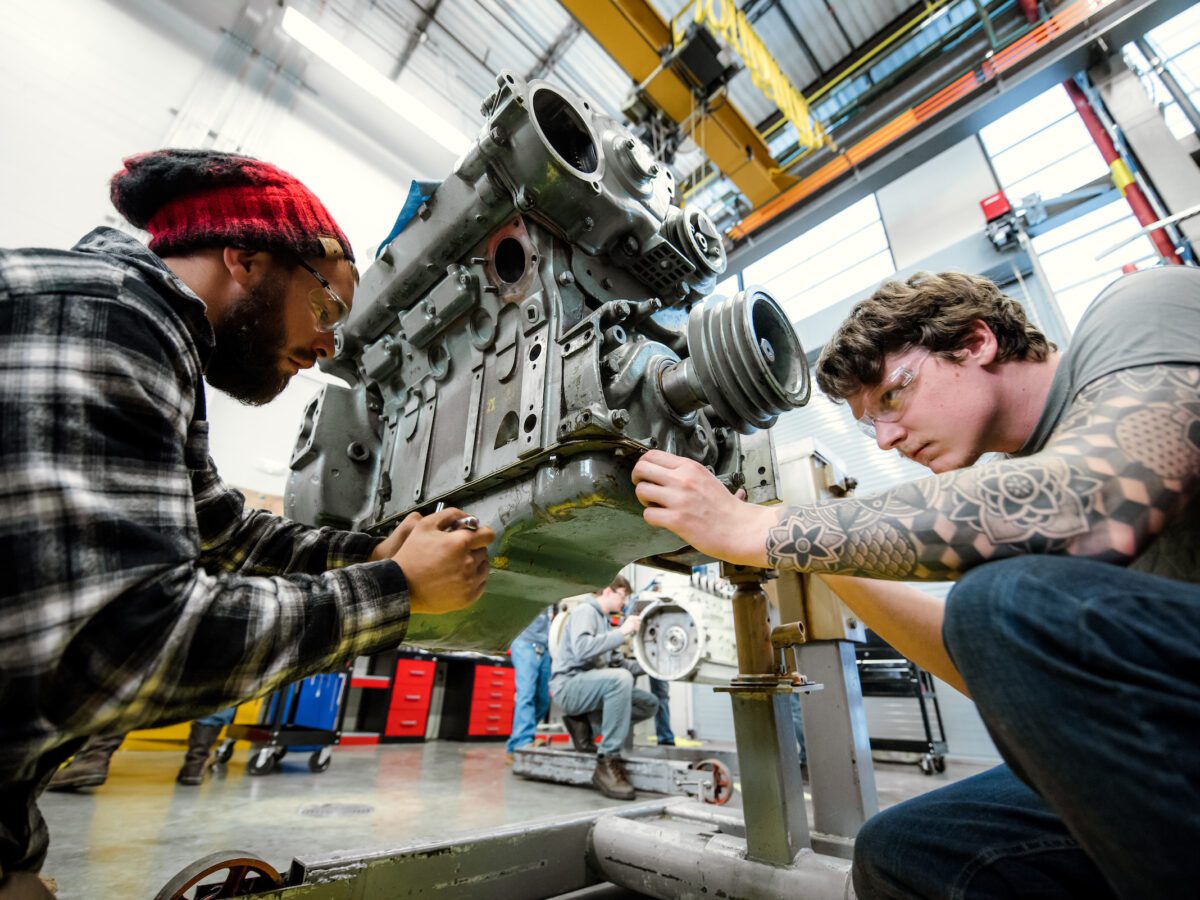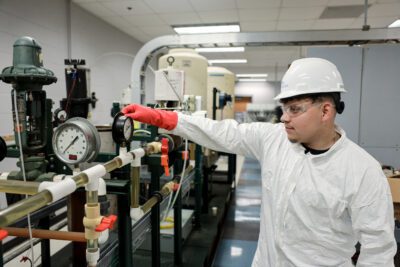
Share this story
Apprenticeships are a cornerstone of workforce development. They offer a unique blend of classroom instruction and on-the-job training, creating seamless pathways to employment. Apprenticeships not only equip students with practical skills and real-world experience but also address the pressing needs of local industries. By fostering strong partnerships between education and business, we can build a resilient and skilled workforce ready to meet the challenges of tomorrow.
This dual approach not only arms students with practical skills but also fosters a deep understanding of their chosen field. As industries evolve and the demand for skilled professionals grows, apprenticeships serve as a vital bridge between education and employment.
The evolution of apprenticeships
In today’s dynamic job market, apprenticeships have evolved far beyond traditional blue-collar trades. At Cape Fear Community College, we recognize this shift and are expanding our apprenticeship programs to include white-collar careers in fields such as information technology, accounting, healthcare, and early childhood education.
This evolution responds to the modern economy’s needs. Apprenticeships, once associated with trades like carpentry and plumbing, now include high-tech roles such as cybersecurity and data analytics. In accounting, apprenticeships cover advanced financial software and regulatory compliance, while in healthcare, they encompass specialized training in computer tomography scan (CT) and magnetic resonance imaging (MRI).
By reimagining apprenticeships, Cape Fear Community College is preparing students for the diverse and dynamic opportunities in today’s job market.
Benefits for students and employers
Apprenticeships provide students with invaluable hands-on experience, bridging the gap between theoretical knowledge and practical application. Unlike traditional classroom settings, apprenticeships immerse students in real-world environments, allowing them to develop skills directly relevant to their chosen fields. This experiential learning not only enhances their technical skills and abilities but also builds confidence and problem-solving skills. Furthermore, apprenticeships often come with the added benefit of pay, allowing students to earn while learning, reducing the financial burden on students, and enabling them to support themselves while they gain essential work experience.
For employers, apprenticeships offer a strategic advantage — the development of a skilled and loyal workforce. By investing in apprentices, employers can tailor the training to meet specific industry needs and company standards. This customized approach ensures that apprentices are well-prepared for the particular demands of their roles upon completion of their programs of study. Additionally, apprenticeships allow students to network and build relationships that lead to high employee retention rates. Employers also benefit from the fresh perspectives and innovative ideas that apprentices bring to the workplace.
The collaborative nature of apprenticeships strengthens the relationships between community colleges and local industries and businesses. By working together, we can ensure that the curriculum remains relevant and progresses in lock-step with technological advancements happening in the field. Strong apprenticeship partnerships can contribute to the overall economic development of the community.
Building futures
Cape Fear Community College offers 14 diverse apprenticeship programs in collaboration with 144 employer partners. Over 500 students are currently engaged in these programs as apprentices, pre-apprentices, or youth apprentices through the Career and College Promise (CCP) initiative. The success stories from these programs are remarkable. Recently, three high school seniors from the Electrical Apprenticeship Level 1 program completed their coursework and graduated with jobs at A.B. Electrical. All three of these apprentices are set to begin the Electrical Apprenticeship Level 2 program in the Fall.
One graduate, Hayden Jacobs, shared his thoughts on the apprenticeship experience. “It has been an incredible experience from start to finish,” said Jacobs. “The apprenticeship with A.B. Blake Electrical has been amazing, extending well beyond the classroom. I’ve gained not only the technical skills to become an electrician, but also valuable life lessons. I highly recommend this program to everyone, not just those interested in trade work.”
A call to action
Apprenticeships are essential in building a robust and adaptable workforce. By continuing to innovate and expand these programs, we can meet the evolving needs of our economy and provide meaningful career opportunities for our students. Cape Fear Community College remains committed to this mission, building partnerships that bridge education and industry while preparing students for the diverse and dynamic challenges of our ever-evolving job market.
By embracing the changing landscape of modern apprenticeships, we ensure that both students and employers thrive. Students gain invaluable hands-on experience and life skills, while employers benefit from a dedicated and skilled workforce tailored to their specific needs. The stories of success from our apprenticeship programs are proof of their impact.
We will continue to champion and expand apprenticeship programs, recognizing their critical role in workforce development. By doing so, we can build and maintain a resilient, skilled, and future-ready community.




